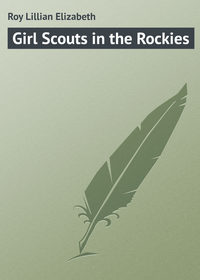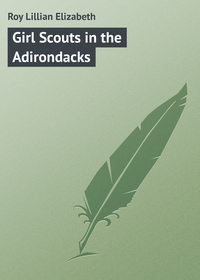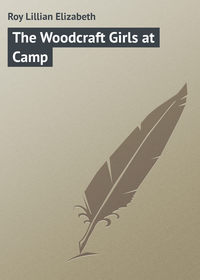 полная версия
полная версияThe Little Washington's Relatives
“‘But a body of militiamen, having approached the bridge, which was guarded by a detachment of soldiers, surrounded and fired upon them. A general skirmish took place, and the British retreated with confusion to their main body in the town.
“‘Smith ordered a retreat, but the militia, constantly increasing in numbers, opened a galling fire upon the British, at the same time being protected by houses, stone walls and trees.
“‘When the British arrived at Lexington, in an exhausted state, they would have been totally destroyed had not Gage, apprehensive for the expedition, sent out Lord Percy with sixteen companies on foot, a corps of marines, and two pieces of artillery to support Smith.
“‘This aid checked the first pursuit of the provincials, but the latter kept up an incessant fire upon the British as they marched on their way to Boston.
“‘The news of this event excited every one in Massachusetts, and soon the whole country was in warlike array. The first blood had been shed by the British without provocation, and the proud army of England had been met by provincial men and made to retreat.
“‘The Provincial Congress of Massachusetts was in session at the time of this battle at Lexington, and it immediately passed a vote to raise 13,600 men. It also called upon the other colonies to increase the army to 30,000; but this request was unnecessary, as the colonists crowded to the standard raised in their defence – more than could be maintained.
“‘The fortifications of Boston were considered strong enough to resist an attack, and the garrison of the British was increased by the 10,000 men who arrived about the same time as Lord North’s conciliatory message.
“‘But the provincials formed a line of thirty miles in extent on the peninsula where the city stood, thus cutting off all communication with the country. Surrounding them was the ocean where the British vessels of war rode at anchor to protect the troops and, if need be, to reduce the town to ashes in an hour’s time.
“‘The British in the besieged city laughed at the foolish attempts to bring them to submission, for had they not everything needed – war munitions, food stores and everything required for use?
“‘On the other side there seemed to be nothing more than a tremendous zeal and willingness to sacrifice all for principle. Untrained men in the ranks, no arms, no resources for war, no ships or field-pieces – in fact, nothing such as the British thought absolutely necessary to win in a fray. Nothing but Principle!
“‘But the colonists realized what they were standing for, and every man accepted the work for ultimate salvation from the yoke. Each stood in his place obedient to his superior, and each chief confined his action to his own sphere, while all felt the bond of brotherhood in the furtherance of a grand plan for all.
“‘Meantime, while the British were penned up in Boston, Arnold and Allen planned a brilliant scheme. With a small body of men they proceeded against the forts of Crown Point and Ticonderoga, the key to Canada. They completely surprised and captured these places without the loss of a man, thus securing valuable and much-needed supplies of military stores.
“‘Then Arnold was successful against a sloop of war lying at St. John’s, and obtained the command of Lake Champlain. This vessel was the very first one to belong to the American navy.
“‘In Virginia, much the same spirit animated the people. As soon as war was apprehended, they solicited Washington to take command of their troops, and he readily consented to this.
“‘The hasty step of Governor Dunmore, causing the powder to be secretly removed from the magazine at Williamsburg to one of his majesty’s ships in the river, caused the whole colony to fly to arms. They resolved to march to the Governor and compel him to restore it.
“‘Dunmore hastily agreed to arrange the matter as requested, so the men returned home, but all held themselves in readiness to march at any future alarm.
“‘The Second Continental Congress, represented by twelve of the colonies, met at Philadelphia on the 10th of May, 1775, and at this convention Georgia sent delegates and was admitted as the thirteenth member.
“‘The account of hostilities at Concord and Lexington, and the capture of Crown Point and Ticonderoga was laid before the Congress. The majority of members, seeing no other way to preserve liberty, urged the necessity of defensive operations.
“‘John Hancock, from Massachusetts, was president of the Congress, and the master stroke of the convention was the election of Washington as commander-in-chief of the United States forces.
“‘The fires of rebellion were now burning steadily in every town and hamlet where patriotic freemen collected, and the launching of the first and greatest nation of Liberty on the earth was accomplished.
“‘June 18, 1775, Washington, now known as General Washington, wrote to his wife to acquaint her with all that had taken place at the Congress. He explained his duty in accepting the position of general of the American army, and he also mentioned family and personal affairs which needed advice.
“‘On the 26th of June, Washington proceeded from New York to Cambridge, where he arrived on the 2nd of July. He was welcomed with joyful acclamations by the men, who felt the greatest hope and success of their mission safely placed with this general.
“‘Washington found the army stationed about Boston to consist of 16,000 men, deeply distressed for lack of war munitions, and many of them insubordinate to officers through lack of military training. Thus it behooved the general to remedy the latter trouble and seek a means of providing for the former.
“‘Reinforcements from England had arrived for General Gage, and about the time that the Continental army was told that the possession of Bunker Hill, a commanding eminence on the north side of Charlestown peninsula, and nearly opposite the British camp, was of great importance, the British also realized that the colonists meant business.
“‘On the night of June 16th a detachment of a thousand men was ordered to take possession of the hill, and throw up with the greatest expedition, fortifications to defend the position; but by some mistake the men took their station on Breed’s Hill, another eminence to the right and nearer the enemy’s lines.
“‘So silently and rapidly did they work that at dawn the British were alarmed to see a redoubt constructed on the brow of the hill, nearly under the guns of their vessels.
“‘Orders were given to open fire from ships and batteries upon the men and works, but this cannonading only served to stimulate the soldiers’ activities and zeal; nor did they cease work until a line of breastwork was completed from the right of the redoubt to the bottom of the hill.
“‘General Gage, finding all efforts to dislodge the men from this vantage point unavailing, ordered two squadrons under Howe and Pigot, to drive out the Continentals. While the British forces landed and formed on shore, the Americans continued work on the fortifications. The British proceeded up the hill, while constant fire was poured in upon the colonists and the newly-built works. Orders were given to burn Charlestown lest the provincials find refuge there when they should be driven from the hill-works. As the town was built of wood, it soon blazed high and covered the surrounding land with its smoke and fire.
“‘The terrible spectacle was witnessed by unengaged soldiers, men at camp, and the now homeless people of the burning town; but the attention of all was soon engaged in watching the advance of the British army up the slope to the place where the Americans calmly awaited the disciplined men.
“‘Major Putnam charged his men to withhold fire until they could see “the white of their assailants’ eyes,” and then fire low. So well was this order obeyed that the first volley from the men in the redoubt was so deadly that the advancing troops reeled, wavered and suddenly turned to flee. But the courage of the officers rallied the men, and they again charged up the hill to have the same unerring fire poured into their midst. Then their lines broke and they fled precipitately.
“‘General Clinton, seeing this defeat from his camp, volunteered to lead a fresh company to the aid of the retreating men. The third attack was more cautious than the first two had been, and artillery had raked the entire length of the breastworks before the troops reached it. Also, the ammunition of the defenders was nearly exhausted, so that they had to reserve their last fire until the enemy was right at the works.
“‘This fire was telling, but had not the same effect as at first, and the redoubt was carried by storm, the Americans dealing death at every step of retreat, and when the powder was gone they used the butt end of their guns to such effect that the redoubt was filled with slain enemy.
“‘Although the victory was with the British, they were so dismayed at the result of the battle that they offered no resistance to the retreat of the Americans, and the latter soon joined their friends.
“‘The British hastily threw up defences on Bunker Hill, and the Americans took a position directly opposite them on Prospect Hill, where they built fortifications that nevermore were approached by the enemy.
“‘This battle was one of the most destructive and bloody recorded in the wars of the Revolution.
“‘News of the fight at Bunker Hill reached Washington as he journeyed on horseback to Cambridge to take command of the army. The slaughter of nearly 1,500 men – 450 Americans and 1,054 British was omen to the whole world that the fight was on to a finish for Liberty and Democracy.
“‘When Washington reached Cambridge, Boston was already in a state of siege, so that the new commander had his hands full. From his first headquarters in the house of the president of Harvard College, he moved them to Craigie House, later known as the Cambridge residence of Longfellow.’”
“Oh, look! The sun’s out!” shouted George at this point.
“Sure enough! Come on and play! We can read history another rainy day,” abetted Jack, jumping up from the rug.
“Mother, thank you for the story, but we’re off now for some fun,” declared Martha, helping Anne to her feet.
CHAPTER V – THE BOSTON TEA PARTY
“What shall we play?” asked Jack the moment the four were out on the veranda.
“Play – why, war of course!” responded George, placing his fingers between his lips and giving a shrill whistle.
“What’s that for?” wondered Anne.
“That’s the signal for Jim that we are going to have an engagement with the British!” replied George, watching eagerly the side of the house where the kitchens were located.
“Hist!” sounded from a thick arbor of clematis that shaded the kitchen porch.
“There he is! Come on now,” ordered George, starting for the lilac bushes across the lawn.
“Children! Come and get your overshoes! Everything is soaking wet!” cried Mrs. Davis from the library window when she saw them race through the wet grass.
“Oh, dear me! Martha, you go and bring them to us, will you?” asked George impatiently.
“I’m not Mrs. Washington yet, and she didn’t run errands for George before she was married to him,” objected Martha.
“Send Jim for them!” whispered Jack, as he saw the little fellow running with might and main to join his adored commander-in-chief.
“What will you play with if the weapons and uniforms are in the attic?” asked Anne.
At this they all stopped short, as no one had thought of the army equipment till then.
“Guess Jack and I had better go for the overshoes and then we can bring along some things for the Continental army,” ventured George.
“And send Jim on to John’s house to call him out,” added Martha.
“Yes, that’s a good plan. You, Jim, see here!” explained George. “Climb over the hedge and look for John. If you don’t see him, whistle, and when he comes out, tell him we are going to the creek to have the Boston Tea Party – see?”
“Yeh, Ah see all right!” eagerly replied Jim, nodding his woolly head energetically as he started off for the hedge that separated the Grahams’ from the Parkes’ estate.
The two girls were told to go to the barn and find some tools – axe, nails, hammers, or hatchets, and a saw, if possible.
“What for?” asked Anne.
“Don’t we have to have warships out in Boston harbor if we want a tea party like that real one was?” scorned George, as he caught hold of Jack’s hand and ran for the house.
The lilac bushes were abandoned for a time, while the girls sought for and captured various tools in the barn when the gardener was absent. The two boys tied up whatever uniforms they could conveniently carry, and Jim hid them near the Grahams’ house and gave the familiar cat-call for John.
These important errands completed, they all went to the creek that crossed the private road leading to the Parke estate.
Again assembled for play, they examined the items on hand and John said: “You can’t have ships without material.”
“I thought maybe we could rope together some of these logs the men chopped down last spring; but they look kind of heavy to handle,” replied George calculatively.
“Humph! They’d take a tackle and derrick to move. What we need is just boards and some crosspieces to tie together like a raft. I’ve made ’em in camp,” said Jack.
“Then you can help us make one now,” said Martha eagerly.
“We’ll have to find some boards and small logs then,” replied Jack, looking about in the timber heap for suitable lengths for crossbeams.
“We’ve got some boards about six feet long in the lumber house near here that I heard father say he wouldn’t use till next summer. Then he’s going to lay a new boardwalk from the garage to the barn,” suggested John.
“Just what we need. Come and show me where they are, and we four boys will bring them here while the girls roll those small lengths of timber down to the water-edge,” said Jack.
Soon all hands were working eagerly, nailing boards to some crosspieces, and then roping loose ends securely to the logs so they would not slip off when launched in the creek. The water of the stream was nearly a foot deeper than usual, owing to the heavy rains of the night and morning, so the raft would float easily if it was well built.
The battleship was ready to sail when the luncheon bell sounded over the lawns to call the British and Continental armies to mess. The children looked at each other in disgust, for now it seemed a wholesale waste of time to go home and eat!
“What have you got for tea?” asked Martha at this moment.
“We’ll have to make-believe tea,” said John.
“That won’t be as much fun as if you had some chests and boxes stacked on the boat. Maybe Jim can find some empty boxes in the store-room for us to fill with sand,” ventured Anne.
“I’se got some broomsticks hided away in a alley under de pantry. Dey kin be for guns,” remarked Jim, who hoped his news would divert the thoughts of his friends from the raid on store-room boxes. Jim felt that would be a dangerous attempt.
“Fine! Bring them out and leave them under the lilacs while you go back for the empty boxes. We’ll eat lunch and meet you where you leave the guns,” said George conclusively.
“Cain’t some uv yo’ all hep me in de store-room?” asked Jim plaintively.
“What for? You can creep in and empty some boxes out better than if a lot of us went with you,” countered Martha.
“But onny one uv yo’ all will hep a lot! Not all uv yo’. One uv us kin han’ down dose boxes an’ anudder kin shift it outen de store-room winder. Den Garge kin stan’ unner dat winder an’ run wid ’em t’ de lilacs,” explained Jim, who really was very cunning in self-defence.
“Good stunt! Martha, you go with Jim right after lunch and Jack and I will carry away the goods,” said George, waving a hand at John, who started in the opposite direction for home and luncheon.
“I’ll try to bring some things, too,” said John.
At the table that noon, the ladies suggested that they all take a nice drive about the country in the automobile. The amazed children looked at each other and then at their elders.
“Goodness me! We don’t care about scenery, mother!” objected George.
“Of course not! We want to play nice outdoor games,” added Martha.
“What have you been doing since we stopped reading?” asked Mrs. Davis.
“I didn’t hear a sound from you, so I thought you were pining for something to do; that is why I proposed the drive,” said Mrs. Parke.
“Oh, no, we never pine. First we found Jim, and then we went to John’s side of the hedge to get him. After talking over the best thing to play, we decided to build something Jack knows all about ’cause he has camped, and we are going to carpenter just as he tells us this afternoon, so you see we haven’t time to admire the scenery,” explained George.
“That is very nice, and constructive play is always to be encouraged, Kate,” remarked Mrs. Davis to Mrs. Parke.
“But there is generally something doubtful under all of the quiet and constructive plays George favors so readily,” doubted Mrs. Parke.
“Mother, if you don’t believe we are going to build something great and worth while, ask Jim. He never tells fibs!” said George, with such a disappointed expression in his eyes that said ‘My own mother hesitates to trust me,’ that both ladies hastened to assure him that they fully trusted him.
So the mothers were sent off on the drive, and the two armies continued their plans for a grand fight.
The moment luncheon was over Martha crept to the back door and thence to the store-room that was built out from the butler’s pantry. The servants were all downstairs eating lunch and talking, so the time was most opportune for a raid. Jim was already there trying to pry up lids of cereal cartons and other boxes.
“Heah’s some mos’ empty,” said he, the moment Martha appeared in the store-room.
“They’re all right! Even if there is a little oatmeal and rice in some of ’em – so much the better, cause we must try to fish ’em out of the water when the Yanks throw the cargo in,” said Martha, carrying the three boxes to the window, and dropping them out on the grass where George stood waiting.
Besides the three boxes used for cereal, Jim found a real tea-caddy, but it was more than half full, so Martha emptied the contents on a newspaper spread on the floor behind the door.
Also they found a soap box and the contents was emptied on top of the tea for want of a better place. A cardboard drum that had held dried fruit or other viands, stood on the shelf with some stuff in it – lumpy and pulverized together.
“What is this?” asked Martha, taking up a lump.
“Ah donno, but maybe yo’ kin tell ef yo’ tas’ it,” suggested Jim.
So Martha carefully touched the lump to her tongue, but the moment it came in contact with the pink tip, the washing-soda burned and smarted horribly.
Martha dropped it and held her mouth frantically, while Jim implored her not to make a noise or they would be “ketched.” But the venture was enough for Martha, who hurried out of the room to seek a drink of cooling water.
Jim, thinking it a shame to leave a nice drum there after such a painful experience, emptied the soda upon the soap and orange pekoe tea and dropped the drum from the window. He then climbed up and dropped himself out upon the grass, where George waited.
“Where’s Martha?” queried Jack.
“Makin’ soap-suds, Ah reckon,” giggled Jim.
“Making what?” demanded George, surprised.
“Wall, she’s went fer a drink an’ ef dat sody sticks to her tongue she’ll have suds all inside her mouf, won’t she?” said Jim.
Martha’s appearance quieted any fears for her safety, however, and soon after all were running to the creek with their burdens of boxes and broomstick guns.
The raft was heavy and hard to move, but finally all hands heaved and tugged and moved it inch by inch nearer the water. The bank of the stream was about three feet above the surface of the water, so when the raft was half over the bank they expected to see it plunge headlong in with a splash, but it stuck on the jagged trunk of a tree, and the children tried in vain to dislodge it.
Then Jack had an inspiration.
“We’ll use the broomsticks and pry her off!”
“Fine idea! Here, John, you stand there and pry under her with this stick. Jim can stand there just opposite you, while Jack and I, being strongest, will pry and shove from the back to shove her over,” said George.
Obediently, John took his place and Jim stood on a flat stone opposite, but on the lower side of the raft. When the signal was given by Martha, all four shoved and worked together and the raft moved an inch more nearer the water.
“Fine! Now, boys, once more!” shouted Jack.
Again the signal sounded, and all four pried and pushed. Suddenly the weight of the raft carried it forward with great momentum, dislodging the stone upon which Jim stood and pushed with his broomstick. He lost his balance and fell upon the raft just as it submerged in the creek.
Jim went with it, and as the mud that was stirred up from the bottom of the sluggish stream when the heavy corner of the raft dug down through the water immediately clung to him, Jim was an object for pity when he sputtered up from the water.
“Dear me! The first man overboard and neither side ready for the act!” sighed Anne seriously.
“Aren’t you ashamed of yourself, Jim, to go and spoil the battle like that?” demanded Martha, justly angry.
“Huccome Ah feel ’shamed? Diden’ dat ole warship give me struggle enough widdout yo’ all blamin’ me fer a wettin’?” cried Jim defensively, trying to rub the mud from his eyes.
“Well, now that you’re wet, you’d better be the captain on the ship. Get the raft back here to shore so we can load her up with tea,” ordered Jack.
“Whose going to be British and who the Yanks?” asked John.
“I’m always George Washington in these fights,” hinted George.
“Then you’re out of this battle, ’cause Washington hadn’t a thing to do with the tea party,” returned Martha.
“You ought to be a Lord Somebody who sailed with the captain on the Dartmouth when that tea was brought over from England,” said Jack.
“Guess I will. Jim can tow the raft over to the bank, and those of you who are colonists must hurry across the bridge to the other side. We British will stay here and pile up the cargo of tea and sail the raft across the creek.
“When we sail into Boston harbor you must try to keep us out, and that is the way the fight will begin. Whichever side wins can take the raft, and cargo and sail it wherever they like,” explained George.
It had not been Jack’s plan to have George take the first ride on the raft, nor, indeed, command the warship, but having said it he could not very well change the order, so the next best plan was to sail with Lord Somebody, with Jim the captain.
The captain, so proud of his title and position, forgot about his muddy appearance, and eagerly hauled the cumbersome raft to the bank.
“S’posin’ you girls and John be the colonists on the other bank. You must use the guns and anything you can to keep us from landing the tea,” said Jack.
As neither Anne nor Martha wished to risk their dry clothes on the tipsy-looking raft, this suggestion met with their fullest approval; but John grew sulky, as he wanted to try the raft.
“It’s made of my father’s boards, too!” grumbled John.
“What’s that?” shouted Jack, now engaged in loading the ship with chests.
“Nothing much! I don’t see any fun in this fight, that’s all,” complained John.
“Oh, but there will be! Just wait till we get in that row in Boston harbor! Hurry across and be ready for us,” cried George, who half-suspected John of jealousy, and, at the same time, felt he was guilty of selfishness himself.
The tea was stacked in its boxes on the ship Dartmouth, and the three, Captain Jim and the English baronets, as passengers, set sail for Boston harbor.
On the American side, Martha had found an old apple tree near the bridge, the fruit of which had lain so long on the damp ground that the apples were rotted within and soft as pulp, the skins being the only sound part of the fruit.
“Wouldn’t they make fine cannon-balls?” exulted Martha.
“Oo-oh, let’s!” cried Anne, and John, coming up just then, felt a secret joy in planning how he would fire those cannon-balls at the men on the ship.









